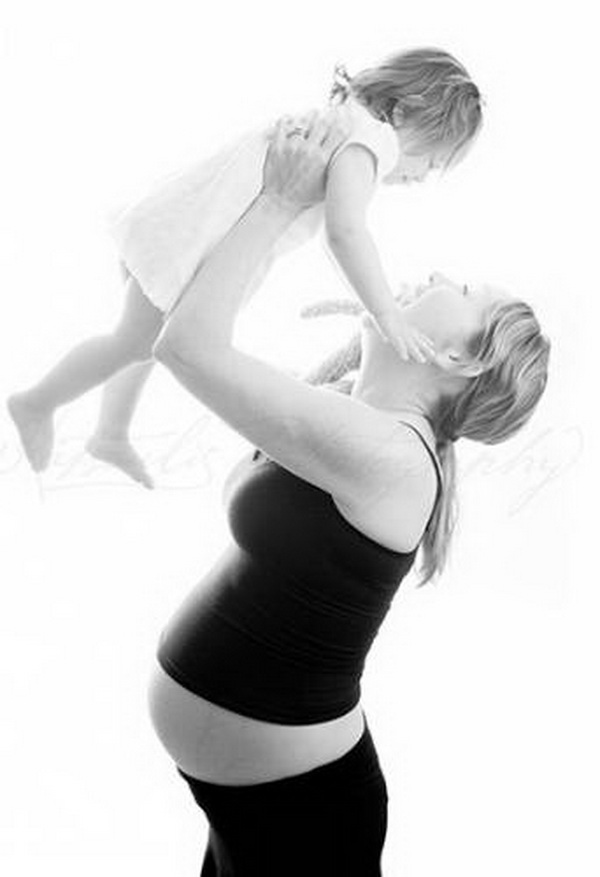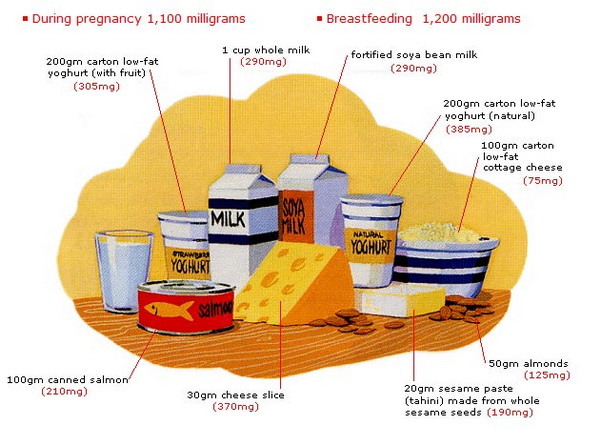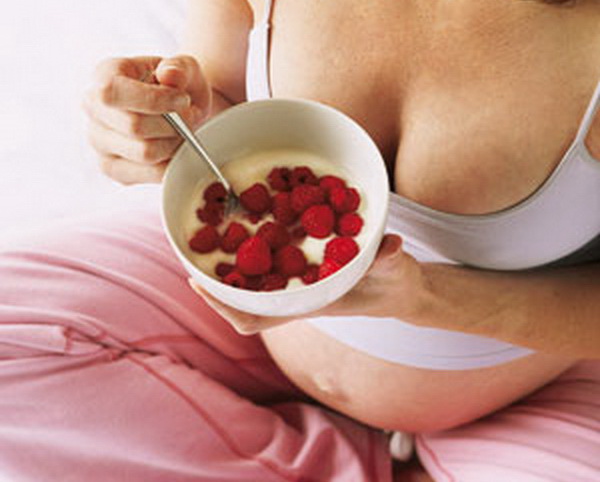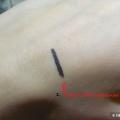Calcium for pregnant women - foods, norm
Pregnancy, in fact, is the birth and development of a new life. And in order for the baby in the mother's womb to grow and develop normally, to be born a full-fledged person, his body needs many useful elements and substances, including calcium.
Calcium is the main chemical element, with with the participation of which the formation of the musculoskeletal system, cartilage and bones occurs. Calcium during pregnancy is necessary for both mother and baby. It helps the baby in the formation of a full-fledged skeleton, prevents the development of rickets in the child.
If enough calcium does not enter the body of the expectant mother with food, then the growing baby takes it from the mother's skeleton - up to the development of osteoporosis. Calcium is important for the formation of a healthy nervous system, heart, muscles and a strong skeleton of the unborn baby.

And for the expectant mother, the intake of calcium into the body helps prevent stress, allergies, neutralizes the influence of bad modern ecology, protects against hair and teeth loss. In addition, calcium plays a protective function for the mother's body - it can prevent blood loss during childbirth, protect a woman from premature birth, seizures. If during pregnancy the female body did not receive enough calcium, then this can be expressed by complications during childbirth, as well as disorders in the functioning of the kidneys, systems: digestion and cardiovascular. Therefore, it is so important throughout pregnancy to monitor whether the mother's body has enough calcium, and especially when the fetal bone tissue is being formed.

Symptoms of calcium deficiency during pregnancy
Symptoms of calcium deficiency in the body are as follows: leg cramps, brittle nails and hair, and flaky dry skin. However, such symptoms do not at all indicate that the expectant mother was inattentive to her health. Calcium deficiency is experienced by two out of ten women in the last weeks of pregnancy. If calcium deficiency was observed during the entire period of pregnancy, then the newborn baby has a great threat to get sick with rickets. Rickets is a disease that leads to skeletal deformity, impairing the growth and formation of bones.

But even if you take special preparations containing calcium during pregnancy, if you do not follow the diet, they will not be able to help you. That is, you need to eat correctly, without overusing those foods that contribute to poor absorption of calcium or its leaching from the body. These products include flour, sweet, coffee, cocoa, fatty and salty dishes, soda.
In addition, smoking, a passive or, on the contrary, an overly active lifestyle contributes to poor absorption of calcium.

What to do if the female body lacks calcium during pregnancy? First of all, you need, of course, to eat well and properly. That is, be sure to consult with the doctor who monitors your pregnancy. After all, it is not enough to eat only foods containing calcium, it is also necessary that the elements that contribute to the assimilation of calcium - magnesium, copper, boron, manganese, zinc - enter the body.
Sources of calcium for pregnant women
Naturally, the main supplier of calcium is calcium-containing foods: dairy products, nuts, green vegetables. Of dairy products, you need to regularly consume yoghurts, yogurt, low-fat cheese. A lot of calcium is found in broccoli, almonds, and legumes. Calcium is found in many vegetables, but you should not eat a lot of greens, which contain oxalic acid: spinach, beets and sorrel itself.
Other sources of calcium- cereals, bread, oatmeal, collard greens, tofu, orange juice.

Calcium for Pregnancy + Sunlight = Prevent Osteoporosis
To prevent illness, a pregnant woman needs not only calcium, but also vitamin D - without it, the body is simply not able to assimilate a valuable trace element.
As a result, everything happens according to the scheme already described by us - calcium is washed out of bone tissue, the skeleton becomes thinner, and a woman in the future is threatened with frequent injuries and fractures.
To get the required dose of vitamin (about 200 international units), be sure to take a walk - albeit a little, but every day. A 10 - 15-minute stay in the fresh air stimulates the production of the required amount of vitamin D in the body, it is not for nothing that it is also called solar. In addition to walking, it is very useful to drink fortified milk - soy or regular.
Other sources of vitamin D- cod liver, egg yolk, salmon, sardines, herring.
It is worth starting to take care of the intake of the required amount of calcium into the body from the first days of pregnancy. Regularly, or rather every day, you should have yogurt, milk, hard low-fat cheese and cottage cheese, rye bread, fruits, legumes on your table. And gradually, by eating regularly and correctly, you will create a supply of calcium in your body, which will be so useful for your baby in the third trimester of pregnancy.

But remember that everything should be in moderation. That is, you do not need to eat calcium-containing foods in kilograms. Excess calcium in the body can create a real problem in the form of kidney stones, disorders of the heart and blood vessels. Excess calcium in the body can lead to poor absorption of magnesium, such an essential element for the normal functioning of muscle and nerve cells.
A correct balanced diet, a healthy lifestyle, good rest and sleep - this is what will ensure the normal course of pregnancy, the health of mom and her baby.
 How to have the perfect date when you're not romantic
How to have the perfect date when you're not romantic What diseases do you need to drink coffee - benefits and effects
What diseases do you need to drink coffee - benefits and effects All my brown eyeliners
All my brown eyeliners